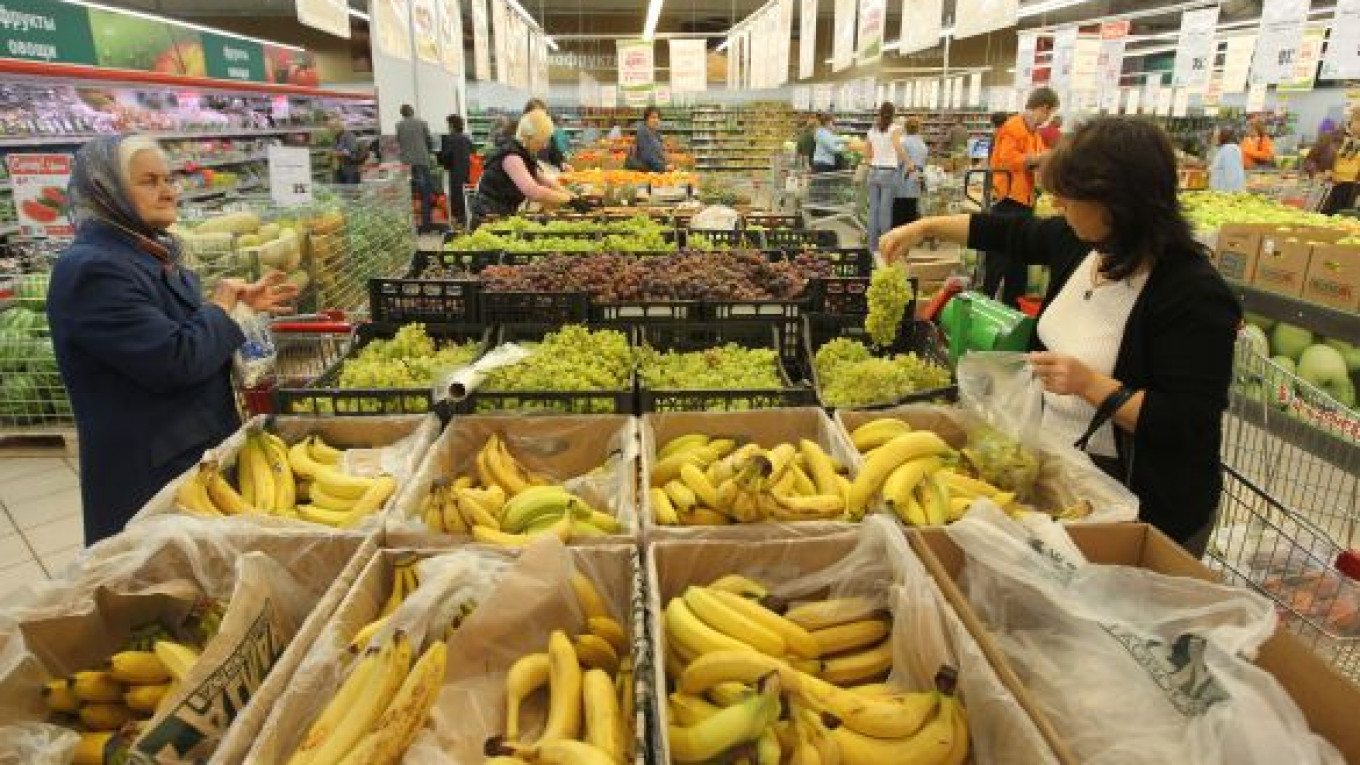A customer who shot and wounded a security guard in a failed attempt to steal a bottle of vodka was probably the least of X5 Retail Group's worries last week. The quarterly report that the supermarket giant published last week shows that it continues to struggle in managing its hypermarkets, reporting a decrease in sales and another closure of a large store.
The country's largest retailer in terms of revenue reported a net sales increase of 10.4 percent in its third quarter, but turnover at its hypermarket stores — the largest of its outlet types — decreased by 9.9 percent to 14 billion rubles ($452 million) while total customer visits to hypermarkets decreased by 3.7 percent.
Sales at the company's Karusel chain, which consists of 76 hypermarkets, decreased because the company canceled a nationwide loyalty program in February and closed a large store in the Samara region in July following "unsuccessful negotiations with the lessor to downsize the selling space," according to the quarterly report.
The group closed a hypermarket in Rostov-on-Don in May 2011.
The sheer size of the stores makes them harder to set up and manage, said Andrei Nikitin, senior retail analyst at Alfa Bank.
A store over 3,000 square meters in size could be considered a hypermarket. X5 Retail Group has stores that are up to 10,000 square meters, which makes them particularly challenging to operate, Nikitin said.
Retailers frequently have to build the hypermarket themselves since there are few existing shopping facilities of this size. Bigger hypermarkets also require more investment in ancillary infrastructure, like large parking lots.
In January, the retailer announced that it wants to decrease the area of each of its hypermarkets to 4,500 square meters. The store in the Samara region was 9,800 square meters and the store in Rostov-on-Don was 9,000 square meters.
The Karusel store in Nizhny Novgorod will have its area reduced by the end of the year, press relations manager Vladimir Rusanov said. Five more stores are slated to shrink in 2013.
"The areas are being reduced in order to optimize operations at a number of sites and make the use of commercial space more efficient," Rusanov said.
Despite Karusel's declining results, experts say that the hypermarket format can still be successful in Russia. The format is expected to double its market share to 20-25 percent over the next seven years, mostly at the expense of open markets and street retail, Nikitin said.
"The closing of one store does not indicate the beginning of a trend," Nikitin said. "Hypermarkets are a relatively new format for [X5 Retail] so they may still be experimenting with them a bit."
Rusanov said that X5 Retail Group has no plans to phase out the hypermarket format and is planning to open new hypermarkets in several regional cities, including Tambov, Smolensk, Miass and Novomoskovsk.
Related articles:
A Message from The Moscow Times:
Dear readers,
We are facing unprecedented challenges. Russia's Prosecutor General's Office has designated The Moscow Times as an "undesirable" organization, criminalizing our work and putting our staff at risk of prosecution. This follows our earlier unjust labeling as a "foreign agent."
These actions are direct attempts to silence independent journalism in Russia. The authorities claim our work "discredits the decisions of the Russian leadership." We see things differently: we strive to provide accurate, unbiased reporting on Russia.
We, the journalists of The Moscow Times, refuse to be silenced. But to continue our work, we need your help.
Your support, no matter how small, makes a world of difference. If you can, please support us monthly starting from just $2. It's quick to set up, and every contribution makes a significant impact.
By supporting The Moscow Times, you're defending open, independent journalism in the face of repression. Thank you for standing with us.
Remind me later.






